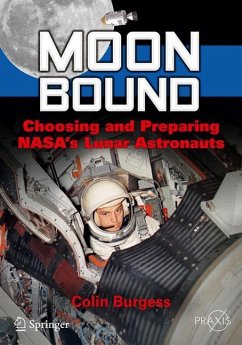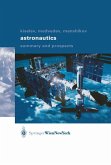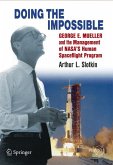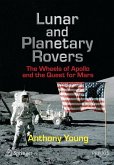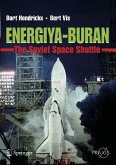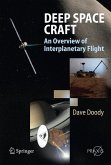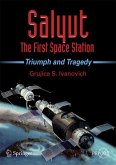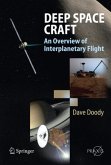Often lost in the shadow of the first group of astronauts for the Mercury missions, the second and third groups included the leading figures for NASA's activities for the following two decades. "Moon Bound" complements the author's recently published work, "Selecting the Mercury Seven" (2011), extending the story of the men who helped to launch human spaceflight and broaden the American space program. Although the initial 1959 group became known as the legendary pioneering Mercury astronauts, the astronauts of Groups 2 and 3 gave us many household names. Sixteen astronauts from both groups traveled to the Moon in Project Apollo, with several actually walking on the Moon, one of them being Neil Armstrong.
This book draws on interviews to tell the astronauts' personal stories and recreate the drama of that time. It describes the process by which they were selected as astronauts and explains how the criteria had changed since the first group. "Moon Bound" is divided into two parts, recounting the biographies relating to the nine astronauts from NASA's Group 2 in the first part, and the fourteen finalists in Group 3 in the second part.
The stories of both selection groups are narrated through the experiences of four finalists with interesting backgrounds. One of these men is Al Rupp of the USAF who, as a West Point cadet, cheekily helped to steal the Navy mascot goat prior to the annual Army versus Navy game in 1953, thus achieving legendary status in the game's history. Rupp was killed in a plane crash just two years after being named as a finalist for Group 3. The service career of naval aviator John Yamnicky was also very much the equal of other finalists, but he was killed on September 11, 2001, as he was a passenger on hijacked Flight 77, which was flown into the Pentagon.
At the end of the work there are several chapters on how these candidates were prepped for their missions.
This book draws on interviews to tell the astronauts' personal stories and recreate the drama of that time. It describes the process by which they were selected as astronauts and explains how the criteria had changed since the first group. "Moon Bound" is divided into two parts, recounting the biographies relating to the nine astronauts from NASA's Group 2 in the first part, and the fourteen finalists in Group 3 in the second part.
The stories of both selection groups are narrated through the experiences of four finalists with interesting backgrounds. One of these men is Al Rupp of the USAF who, as a West Point cadet, cheekily helped to steal the Navy mascot goat prior to the annual Army versus Navy game in 1953, thus achieving legendary status in the game's history. Rupp was killed in a plane crash just two years after being named as a finalist for Group 3. The service career of naval aviator John Yamnicky was also very much the equal of other finalists, but he was killed on September 11, 2001, as he was a passenger on hijacked Flight 77, which was flown into the Pentagon.
At the end of the work there are several chapters on how these candidates were prepped for their missions.
From the reviews:
"Moon Bound, by Australian space historian Burgess, a follow-up to his Selecting the Mercury Seven ... examines the selection process and features profiles of the chosen 9 as well as the other 22 finalists ... . This well-written, factually accurate book is nicely illustrated with 168 interesting halftone photographs from the era. A welcome addition to any space enthusiast's library. Summing Up: Highly recommended. All academic and general audiences." (J. Z. Kiss, Choice, Vol. 51 (2), October, 2013)
"Moon Bound, by Australian space historian Burgess, a follow-up to his Selecting the Mercury Seven ... examines the selection process and features profiles of the chosen 9 as well as the other 22 finalists ... . This well-written, factually accurate book is nicely illustrated with 168 interesting halftone photographs from the era. A welcome addition to any space enthusiast's library. Summing Up: Highly recommended. All academic and general audiences." (J. Z. Kiss, Choice, Vol. 51 (2), October, 2013)

